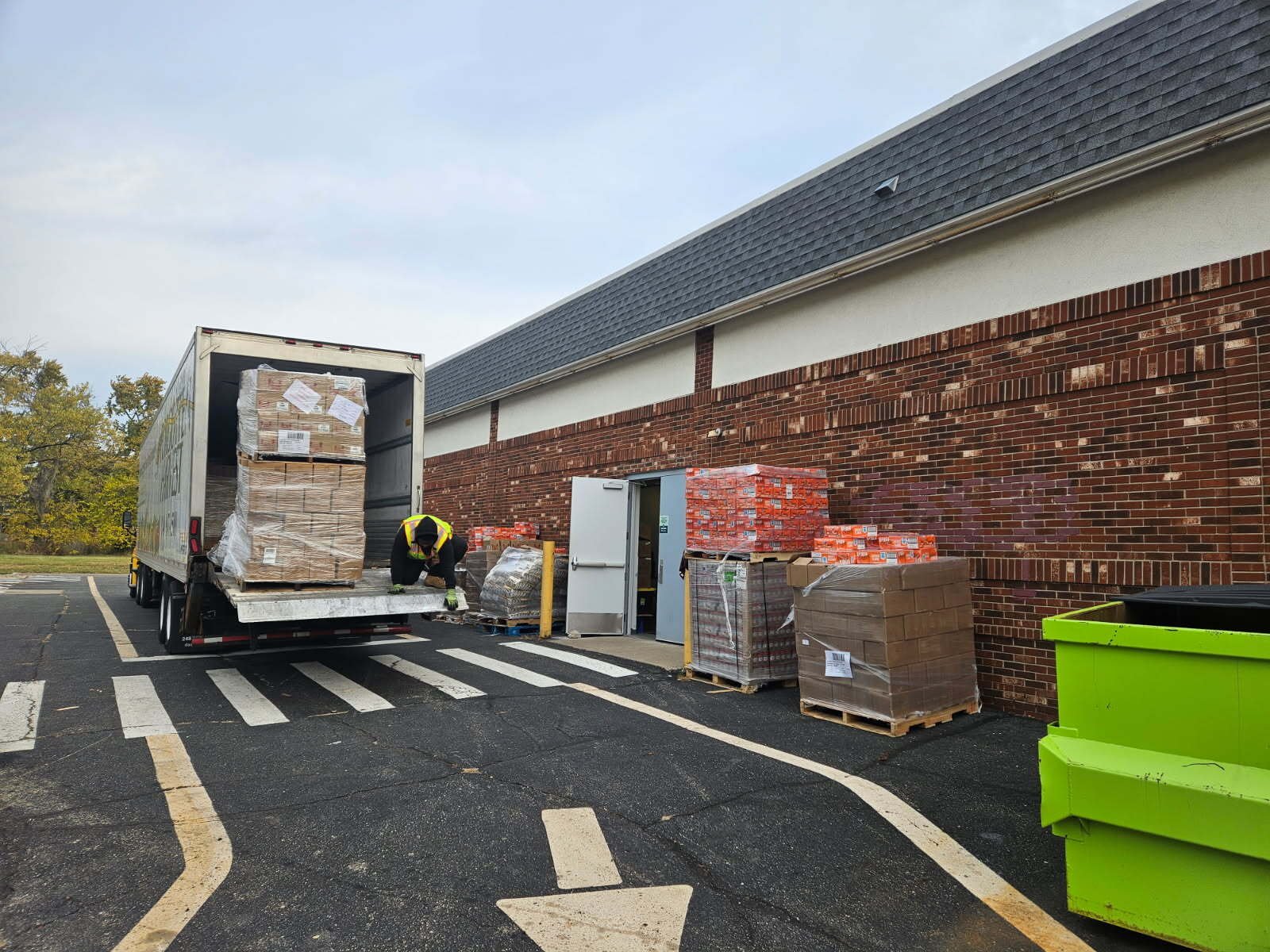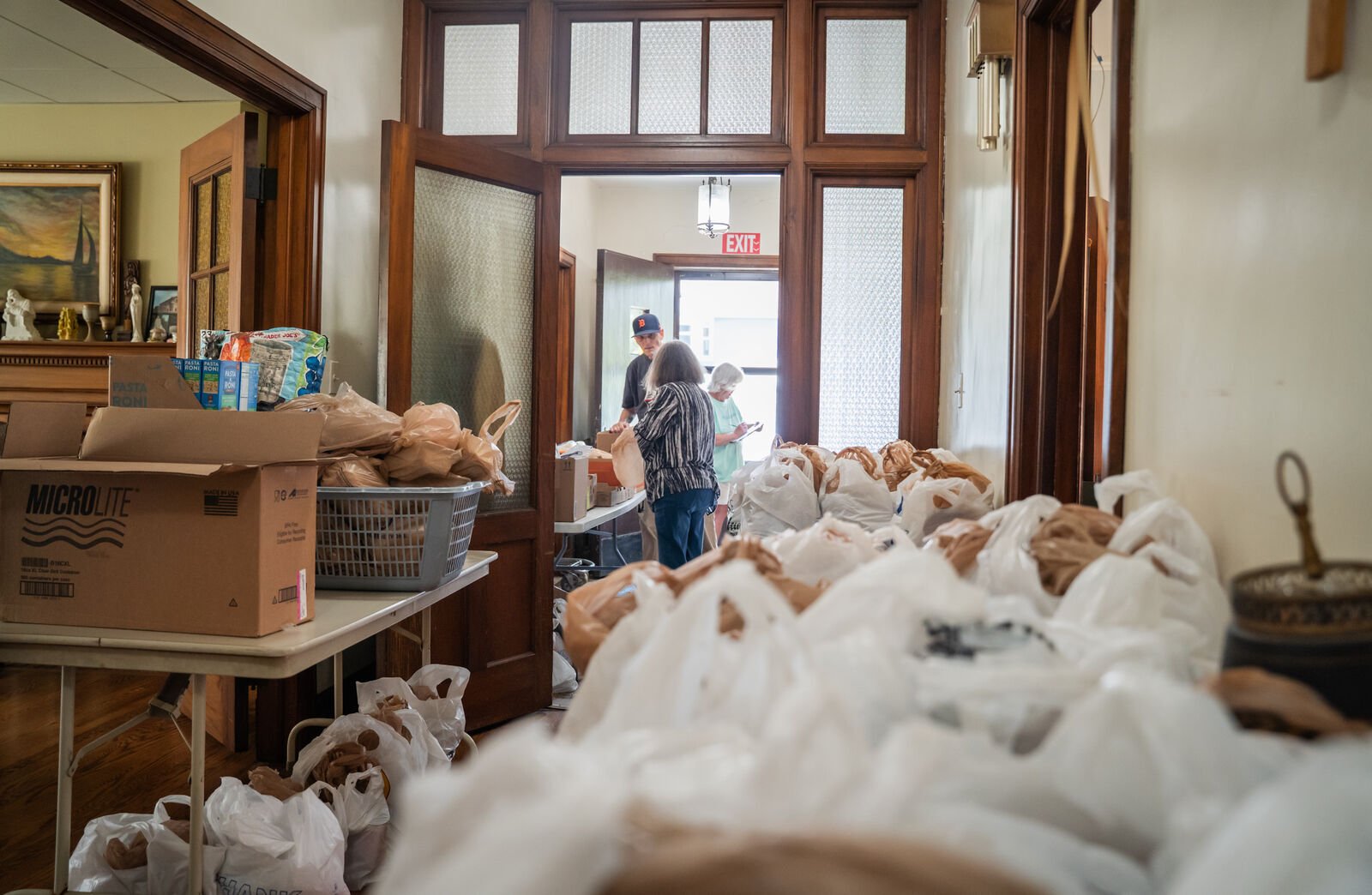CCSEM will distribute food on Thursdays from the Center of the Works of Mercy, launches matching campaign for donations
DETROIT — Catholic Charities of Southeast Michigan is launching a food and emergency relief effort in response to the federal government's budget impasse, which has caused a cessation of SNAP benefit payments.
Beginning Thursday, Nov. 6, the food pantry at the Center for the Works of Mercy, located at 10301 Woodward Ave. in Detroit, will offer drop-in hours each Thursday from 10 a.m. to 3 p.m., in addition to open hours Saturday, Nov. 22, and Saturday, Dec. 6, from 10 a.m. to 12 p.m.
The additional food assistance comes as families adjust to the halting of benefits provided by the federal Supplemental Nutrition Assistance Program (SNAP), commonly known in Michigan as “Bridge Cards.”
The federal government has been shut down since Oct. 1, and SNAP benefits have not been paid since Nov. 1.
“We knew the stopping of SNAP benefits was a possibility, really, as far back as early October, so we have been maximizing all of our partnerships to bring in as much food as possible,” Mark Johnson, director of food programs for Catholic Charities of Southeast Michigan, told Detroit Catholic. “We have been trying to maximize all of our services across our four panties, making sure we can get as many people in and out as we can."
Johnson said social service agencies such as Catholic Charities have "all been very busy as is, but we know the number of people needing help is going to multiply incredibly.”

Last week, the city of Detroit donated a semi-truck full of food to be distributed through Forgotten Harvest, Johnson said, and some of that food is making its way to the Center for the Works of Mercy.
To help meet the increased need, Johnson added Catholic Charities of Southeast Michigan is encouraging community members to help by dropping off packaged and unexpired donations of nonperishable food.
Donations can be dropped off from 9 a.m. to 3 p.m. Monday through Friday at the Center for the Works of Mercy and CCSEM's other food pantry locations, which include La Casa Amiga in Pontiac (76 Williams St.), Adult Day Services at St. Lucy Parish in St. Clair Shores (23401 E. Jefferson), and its new pantry at the Pope Francis Center's Bridge Housing Facility in Detroit (2915 W. Hancock St.).
Monetary donations can also help Catholic Charities stretch its food budget, since the organization works with wholesale distributors to purchase food, Johnson added.
“We have incredible buying power that the average shopper at Costco or Kroger doesn’t have,” Johnson said. “Sometimes, what the average person spends on four cans, I can get for 40 for the same value, so direct cash donations are great.”
As part of its food and emergency relief campaign, Catholic Charities is matching every donation up to $20,000, thanks to an anonymous donor.
In addition, Catholic Charities is looking for volunteers who can help move and organize food at its locations.
Don't miss another story
Did you know you can get Detroit Catholic's latest articles delivered to your inbox? It's easy and free to sign up!
“It takes a lot of bodies to move a lot of food, so there are plenty of opportunities,” Johnson said. “There will be opportunities to sign up and come help with organization and distribution.”
The Center for the Works of Mercy normally books appointments with clients in need of food assistance, and have such appointments booked through January 2026.
The additional drop-in food pantry hours do not require an appointment.
Catholic Charities’ food pantries serve anyone who falls under 200% of the federal poverty level, which is determined by factoring in a family’s size and income. For a family of four, this is $62,400. Many SNAP beneficiaries are employed and use government assistance to supplement their grocery bill, Johnson said.
“Many of our clients are living on Social Security or have a very fixed budget,” Johnson said. “We see a lot of intergenerational housing, a lot of parents living with their kids or kids still living with their parents. It’s not rare for us to see households of six, seven, or eight family members.
“Even with people who are working — many of them full-time — many still aren’t making a living wage. Especially with the current prices of groceries and the effects of inflation, it just makes it harder for people to reach a level of food security,” Johnson added.
In addition to the stoppage of SNAP benefits, earlier this year, the U.S. Department of Agriculture canceled $4.3 million in food shipments to Michigan food banks, meaning less food and higher prices for food pantries purchasing food from food banks.

“When there are contracts that the government has with growers and producers who raise the livestock and crops that are just not being honored or outright canceled, that leads to a reduction of USDA-subsidized food, which is a staple for a lot of pantries,” Johnson said.
“With USDA-backed food, you could buy (items) for almost pennies on the dollar," Johnson said. "When something we used to get for $6 a case now costs $20, that’s a huge difference.”
Johnson estimates Catholic Charities of Southeast Michigan will serve more than 10,000 meals over the course of 2025, with many clients returning to food pantries on a monthly basis. In total, the organization expects to distribute more than 750,000 pounds of food.
Johnson said the Church has historically partnered with the government to feed the hungry, but strains such as the government shutdown are making it more difficult to do so.
“The corporal works of mercy are very clear about feeding the hungry, and one of the ways the Church feeds the hungry is working in partnership with the government," Johnson said. "The government knows that we, as a nonprofit social service organization, are good at distributing food. Organizations like Catholic Charities have always been partners with the government in getting aid to the people in need, and we will continue to be that."
Copy Permalink
Social justice












